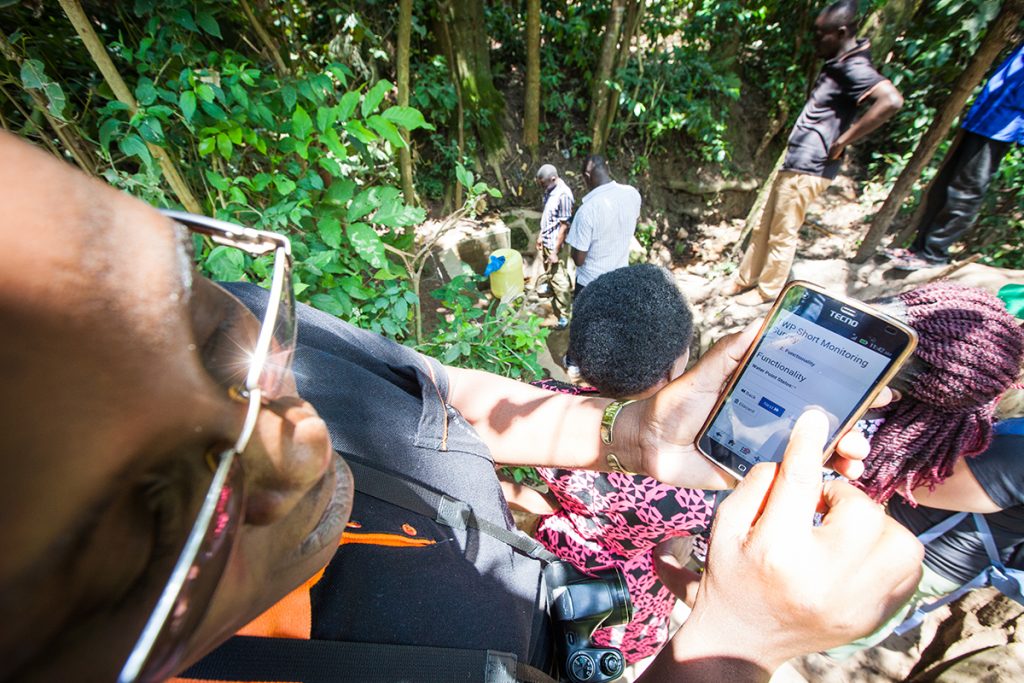What we learn together
The Value of Relationship: Accountability – Part 3 of 5
Part 3: Fostering Accountability
Traditionally, accountability and even corrective action for development projects come from the top. This can lead to the wrong solutions or an intervention based on faulty, imported assumptions. We see it all the time in the graveyards of good meaning, in failed water projects within our program areas. Each nonfunctional project a reminder to the community of what is not reliable, and a reminder that the impact of donor funds is buried within that same broken project. Installing another water project isn’t our biggest challenge — ensuring and proving reliability is.

A local team member gathers functionality data in real time.
While we were inspired by the potential for economic multipliers in water investment, over our 11 years of experience we’ve seen too many water efforts succumb to neglect, the economics of which are obvious. Communities received water for a short time and then something happened. Sometimes it was something simple, like a broken valve. Other times it was something more complex, like a failure of local ownership. Regardless of the reason, it was neglect and lack of transparent follow-up by otherwise well-meaning organizations that prevented resolution. In the worst cases, they knew about these problems and simply moved on to the next “project”, and then the next.
So we determined to change the math. We staked a claim that we thought to be obvious: for a water project to count as effective, it must work every single day. We have to know water is actually flowing and that information must be public. So, we transformed our work, assembling like-minded groups across the globe to make it happen.
A true partnership is an end-to-end process. It involves input, planning, installation and most importantly on-going evaluation. A collaborative, non-competitive, interdependent relationship leads to truth-seeking, not conflict avoidance. A grant seeker won’t reveal all their faults readily. A partner seeking reliable water does.
By working with communities and constantly monitoring projects, we enable accountability from the proverbial bottom. Doing so catalyzes interdependence. It rotates a traditionally vertical process into one that is horizontal.
Like a table.
<< Back to Part 2 | Continue Reading – Part 4: The Table >>
Home More Like ThisTweet